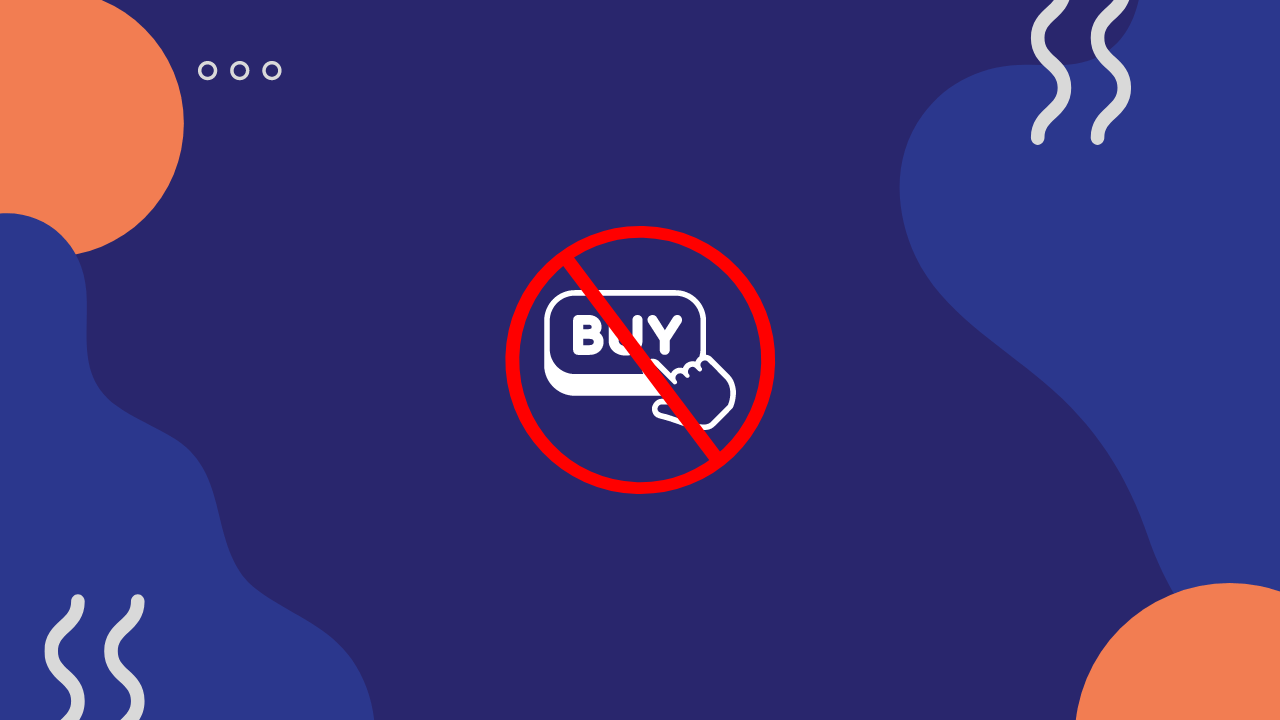Impulse purchases, those spur-of-the-moment buying decisions, can wreak havoc on your budget and financial goals. In this article, we’ll explore strategies to navigate away from impulse purchases, empowering you to make mindful and intentional spending choices.
The Impact of Impulse Purchases
Budget Misalignment
Impulse purchases often lead to budget misalignment, causing financial stress and hindering progress towards long-term goals.
Accumulated Clutter
Frequent impulse buying contributes to the accumulation of unnecessary items, cluttering your living space and diminishing the value of your purchases.
Emotional Spending
Impulse purchases are often linked to emotions, providing temporary relief but leading to regret and financial consequences.
Understanding the Triggers
Emotional Triggers
Identifying emotions that prompt impulsive buying is crucial. Common triggers include stress, boredom, and the desire for instant gratification.
Marketing Tactics
Recognizing the influence of marketing strategies, such as limited-time offers and discounts, helps in resisting the urge to make unplanned purchases.
Peer Pressure
Social pressure and the fear of missing out (FOMO) can drive impulse buying. Building resilience against these influences is essential.
Strategies to Navigate Away from Impulse Purchases
Create a Thoughtful Shopping List
Before entering a store or browsing online, create a detailed shopping list. Stick to the items on the list to avoid unnecessary purchases.
Set Spending Limits
Establish clear spending limits for various categories in your budget. This provides a framework for responsible spending and prevents overspending on a whim.
Delay Gratification
Implement a “cooling-off” period for significant purchases. Delaying gratification allows time for reflection, helping you assess whether the purchase is truly necessary.
Unsubscribe from Marketing Emails
Reduce exposure to tempting offers by unsubscribing from marketing emails. Minimizing exposure to promotional content decreases the likelihood of impulse buying.
Cultivating Mindful Spending Habits
Practice Mindfulness
Be present in the moment and aware of your emotions when making purchasing decisions. Mindfulness helps break the automatic response to impulse triggers.
Track and Analyze Spending Habits
Regularly review your spending habits to identify patterns. Understanding your financial behavior enables you to make intentional changes.
Set Financial Goals
Having clear financial goals provides motivation and a sense of purpose, making it easier to resist the allure of impulse purchases.
Leveraging Technology for Responsible Spending
Budgeting Apps
Utilize budgeting apps to track spending, set financial goals, and receive alerts when approaching predefined spending limits.
Price Comparison Tools
Before making a purchase, use price comparison tools to ensure you are getting the best value for your money.
Online Shopping Carts
If shopping online, add items to your cart and give yourself a day before completing the purchase. This simple step can prevent impulsive online buying.
Overcoming Challenges
Social Situations
In social settings where spending is common, set a personal spending limit and communicate it to friends or family to avoid peer pressure.
Stress Management
Find alternative stress-relief strategies, such as exercise or meditation, to replace the temporary satisfaction gained from impulse purchases.
Learn from Mistakes
Acknowledge and learn from past impulsive buying mistakes. Use these experiences to refine your strategies for future financial decisions.
Building a Support System
Accountability Partner
Engage a friend or family member as an accountability partner. Share your financial goals and seek support in making mindful spending choices.
Financial Education
Invest time in increasing your financial knowledge. Understanding the impact of impulse purchases strengthens your resolve to navigate away from them.
Celebrating Financial Success
Rewarding Milestones
Celebrate reaching financial milestones. Acknowledging progress reinforces positive spending habits and motivates continued responsible financial behavior.
Conclusion
Navigating away from impulse purchases is a journey towards financial freedom. By understanding triggers, implementing strategies, and fostering mindful spending habits, you can take control of your finances.
Invest in your financial well-being by making intentional choices. The journey to responsible spending is transformative and leads to a more secure and fulfilling financial future.
FAQs
- How can I resist the temptation of impulse buying?
- Creating a thoughtful shopping list, setting spending limits, and practicing delayed gratification are effective strategies to resist impulse buying.
- What role does mindfulness play in avoiding impulse purchases?
- Mindfulness helps individuals become aware of emotional triggers and break automatic responses, contributing to more intentional and mindful spending.
- Are budgeting apps effective in controlling impulse purchases?
- Yes, budgeting apps are valuable tools for tracking spending, setting financial goals, and receiving alerts to prevent exceeding predefined spending limits.
- How can I overcome peer pressure to make unplanned purchases?
- Setting personal spending limits, communicating them to friends or family, and building resilience against social pressure are effective ways to overcome peer influence.
- Is it possible to enjoy shopping without falling into the trap of impulse purchases?
- Yes, by cultivating mindful spending habits, setting clear financial goals, and leveraging technology for responsible spending, you can enjoy shopping while staying financially responsible.




